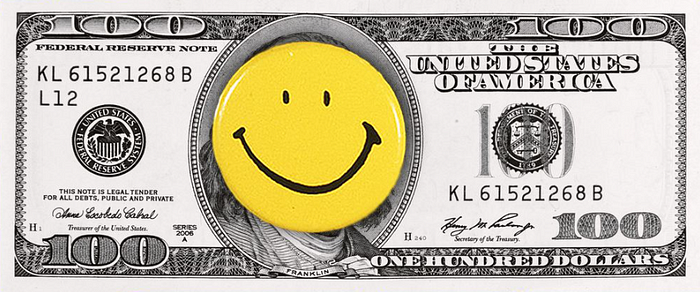Money = Happiness?
Project: Go FACT yourself!

Do you ever find yourself falling down the rabbit hole of the web, getting tangled in a web of fascinating but unrelated topics? I’m totally guilty of that too! So, come join me for a brain dump as we tackle the eternal question: Can money really bring you happiness?
Picture this: You’re knee-deep in the boring task of job hunting, tirelessly fixing your resume for the umpteenth time. Desperately in need of a mental escape, you decide to take a breather and let your mind wander. And guess what captures your attention? Yep, you’ve stumbled upon that age-old conundrum: Does being loaded equal being happy? Cue the endless stream of articles, blogs, and videos, all shouting the same uninspired title, “Can money buy you happiness?” But don’t worry, my friend! I’ve sorted through the noise and uncovered two opposing studies and a recent collaboration that promise to crack this mystery wide open!
As we embark on this intriguing journey, we’ll encounter two research powerhouses: Daniel Kahneman, Angus Deaton, and Matthew A. Killingsworth. Get ready to dive into their contrasting discoveries as we navigate the rollercoaster of differing opinions. But don’t worry! Their collaboration brings a glimmer of hope, shedding light on the intricate dance between money and happiness.
The Dueling Studies: Fat Wallets vs. Emotional Well-Being
In the fascinating realm of money and happiness, there has always been a heated debate. People have pondered whether wealth can truly buy happiness or if there are limits to the relationship between the two. To untangle the web of contradictory findings, let’s delve into the research conducted by renowned scholars Daniel Kahneman, Angus Deaton, and Matthew A. Killingsworth.
Kahneman and Deaton’s Study: Evaluation vs. Emotional Well-Being
Daniel Kahneman and Angus Deaton set out on a mission to unravel the complex relationship between money and happiness. Armed with data from the Gallup-Healthways Well-Being Index, they surveyed 1,000 folks across the United States. Their aim? To compare income levels with emotional experiences and see if any patterns emerged.
Their findings were both eye-opening and thought-provoking. As they plotted income against overall life satisfaction, a fascinating trend emerged. The more dough in the bank, the higher the contentment. Participants reported greater happiness in their lives. Looks like money can put a smile on your face, huh?
But hold your horses! When it came to day-to-day emotional well-being, things took an unexpected twist. The researchers discovered that the positive impact of wealth on emotional happiness hit a plateau around $75,000 per year. After reaching that point, earning more moolah didn’t make a significant difference to day-to-day joy. So, while a fatter wallet boosted life satisfaction, it didn’t quite have the same effect on our everyday emotional rollercoaster.
Killingsworth’s Study: Breaking the Income Barrier
Not one to be discouraged by this happiness plateau discovered by Kahneman and Deaton, Matthew A. Killingsworth embarked on his own adventure to explore the income-happiness relationship. His goal? To challenge the idea that happiness hits a dead end after a certain income threshold.
Killingsworth gathered a massive group of 33,391 employed adults in the United States. Leveraging the power of smartphones, he collected real-time happiness ratings from the participants. And guess what? His findings blew us away! As income increased, so did daily happiness levels. Astonishingly, this trend held true even for folks earning beyond $75,000 a year. Woah, money does buy joy after all!
The Resolution: Income and Emotional Well-Being in Harmony
In the quest to understand the complex link between income and happiness, two noteworthy studies emerged, each offering conflicting results. In 2010, Daniel Kahneman and Angus Deaton’s study suggested a happiness plateau, while Matthew A. Killingsworth’s research in 2021 revealed a different story. These diverging findings prompted the researchers to join forces and uncover the truth.
Their comprehensive analysis of Killingsworth’s data revealed something mind-boggling. Both the happiness plateau and the continuous increase in happiness with income coexisted! But here’s the twist: The pattern depended on the initial happiness level of the individuals.
The happiness plateau observed in Kahneman and Deaton’s study was mostly found among individuals with lower happiness levels. For this group, as income increased within a certain range, happiness soared, only to level off at around $100,000 in the higher income bracket. On the flip side, the continuous happiness increase with income was more prevalent among those who were already pretty darn happy.
The researchers attributed the conflicting results to how happiness was measured. Kahneman and Deaton’s study focused on positive and negative emotions, capturing more of the downers rather than the overall happiness. Killingsworth’s research, on the other hand, used a more nuanced scale, allowing for a deeper understanding of joy.
As they wrapped up their analysis, the researchers suggested that increased income leads to systematic changes in happiness distribution. They emphasized the importance of questioning traditional research practices, including how variables are labeled and assumptions of sameness. Their collaboration proved invaluable in reconciling contradictory findings, demonstrating that researchers with differing perspectives can join forces to unravel the complexities of human well-being.
References:
- Kahneman, D., & Deaton, A. (2010). High income improves evaluation of life but not emotional well-being. Proceedings of the national academy of sciences, 107(38), 16489–16493.
https://www.pnas.org/doi/10.1073/pnas.1011492107 - Killingsworth, M. A. (2021). Experienced well-being rises with income, even above $75,000 per year. Proceedings of the National Academy of Sciences, 118(4), e2016976118.
https://www.pnas.org/doi/10.1073/pnas.2016976118 - Killingsworth, M. A., Kahneman, D., & Mellers, B. (2023). Income and emotional well-being: A conflict resolved. Proceedings of the National Academy of Sciences, 120(10), e2208661120.
https://www.pnas.org/doi/10.1073/pnas.2208661120
